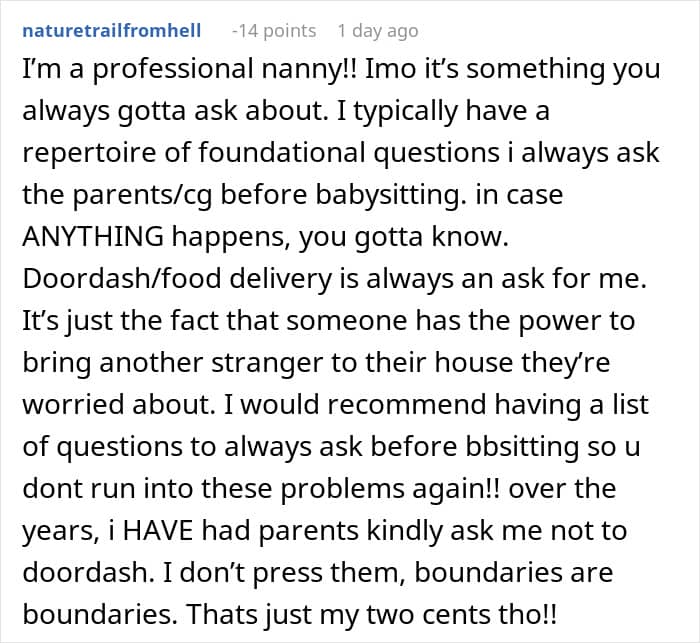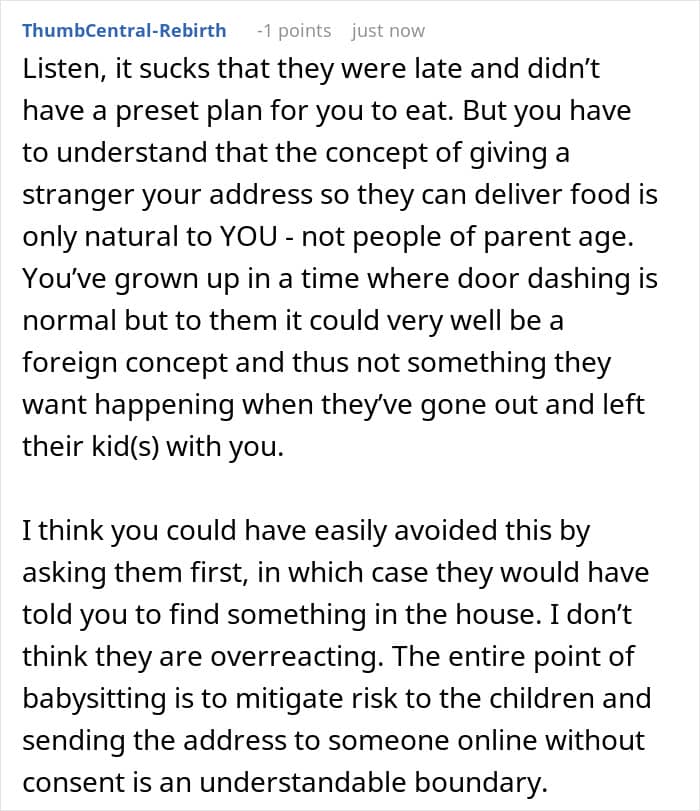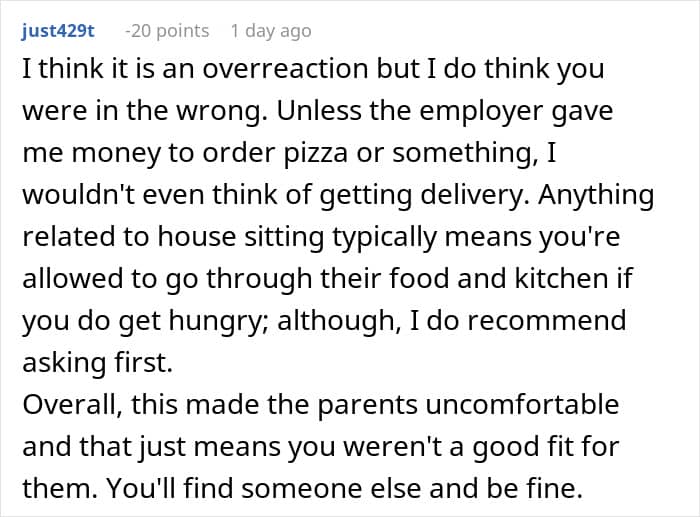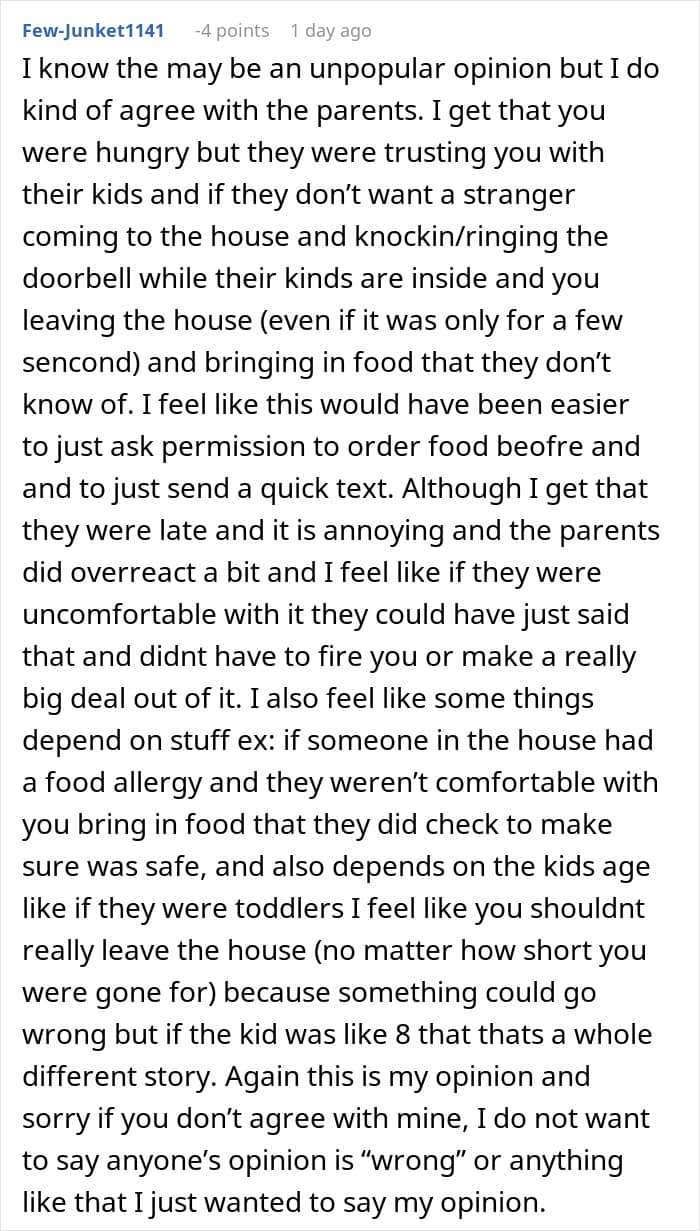Parents usually have a set of rules they expect babysitters to follow, and in many cases, they’re perfectly reasonable.
But this Redditor was caught off guard when the mom they were working for suddenly lashed out over something completely routine: ordering DoorDash because they were hungry. She called it “unsafe” and claimed it put her children at risk. Soon after, she ended the arrangement altogether.
Now, the babysitter is left wondering: was that a fair response, or a complete overreaction?
RELATED:Hungry during their shift, the babysitter ordered DoorDash

To their surprise, the mom didn’t take it well—she called it unsafe and insisted it had put her kids in danger
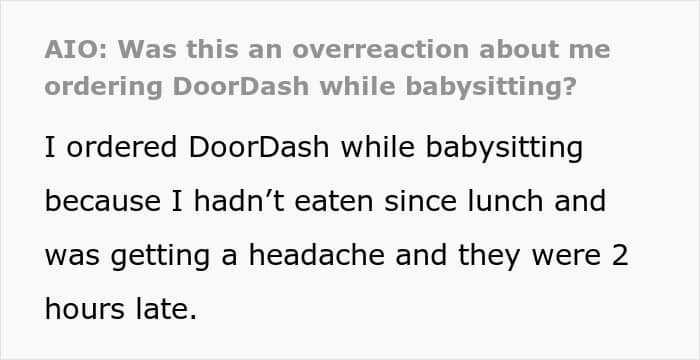

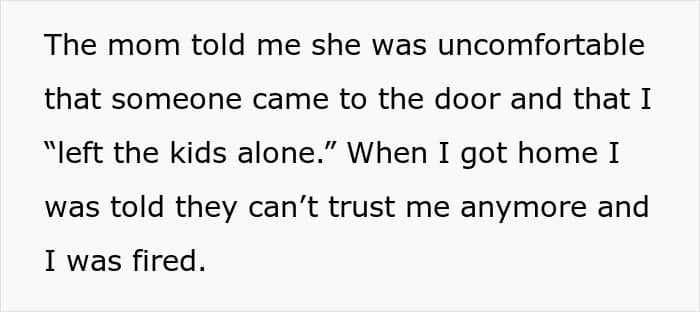


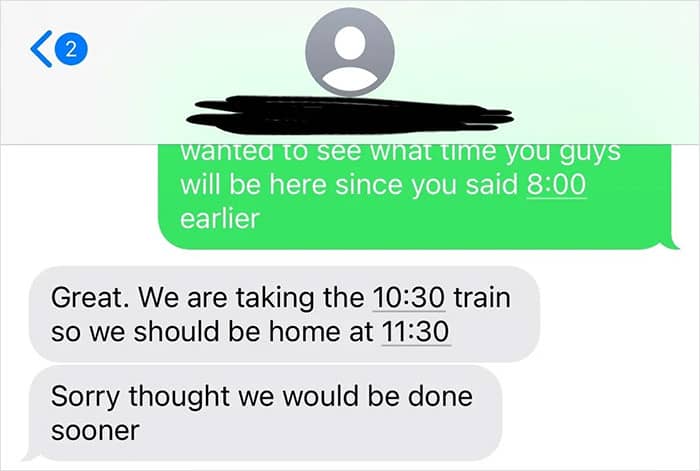
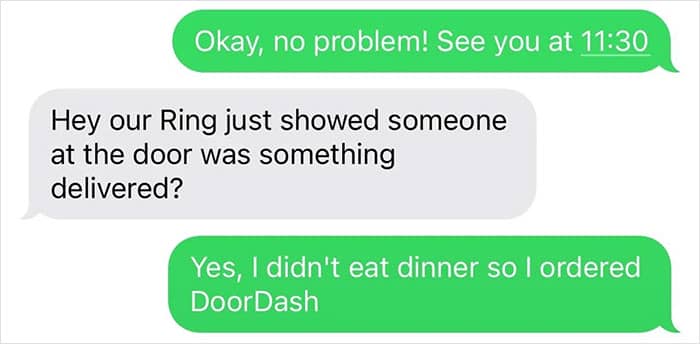
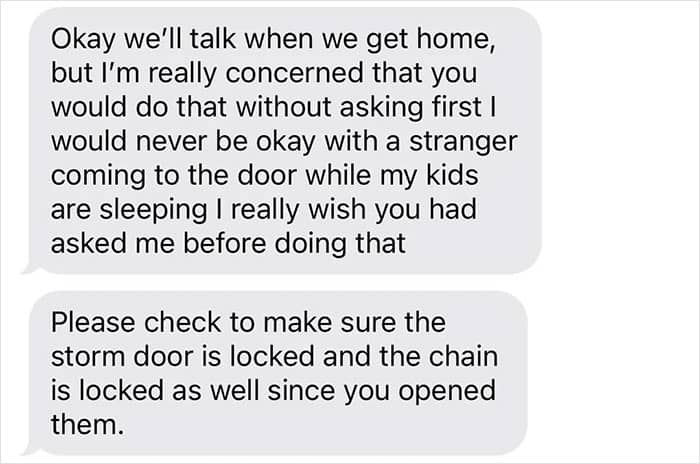

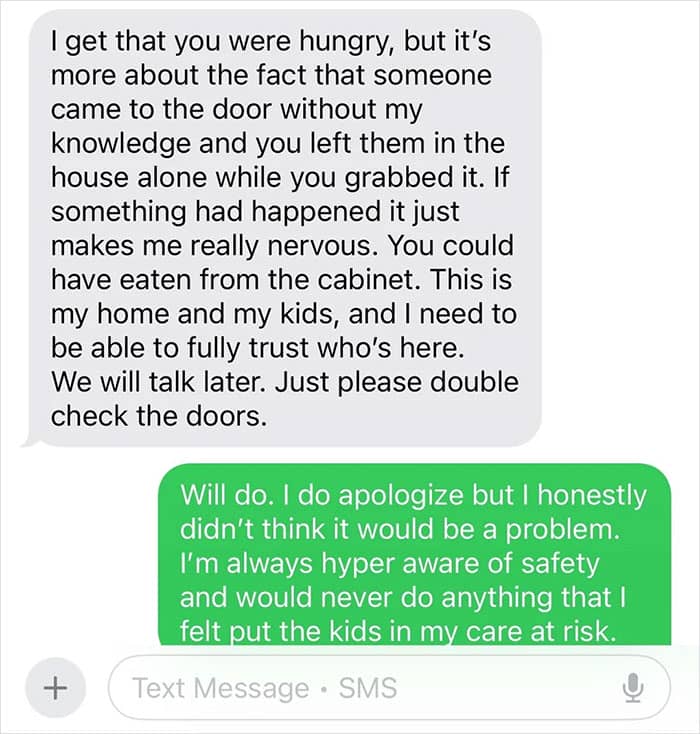
Things babysitters wish parents would stop doing
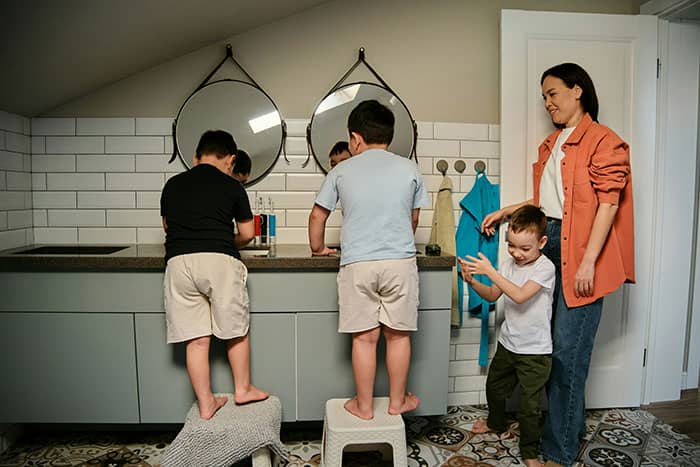
Handing your child over to a babysitter can be nerve-wracking. You’re trusting someone else with their safety and well-being, it’s a big deal.
So it makes sense that many parents try to be as thorough as possible: carefully vetting sitters, setting clear rules, and doing everything they can to stay involved.
But while parents often expect babysitters to be responsible, flexible, and all-around amazing, that expectation goes both ways. Babysitters have a job to do, and parents have a role to play in making sure they can do it well. Unfortunately, not all parents hold up their end of the deal.
Fatherly spoke with several babysitters to find out what they really wish parents would stop doing. Here’s what they had to say—and if you want to keep your sitter happy, it might be worth paying attention.
Delaying payment
“I hate hearing, ‘Do you mind if we pay you next week?”‘ said Jessi, 20.
Babysitting isn’t just a casual favor. For many, it’s their main source of income. That means they rely on timely payment to cover basic expenses like rent, groceries, or even transportation to your home. If you agreed on a rate and schedule, follow through. Pay your sitter on time, just like you’d expect from your own employer.
Changing hours without warning
Life happens. Emergencies come up. But when it’s not an emergency and you’re suddenly asking your babysitter to stay late or leave early, it puts them in a tough spot.
Imagine if your own boss changed your shift last minute without asking. And when parents cut hours short, it can feel like you’re casually docking their pay. A little notice and clear communication go a long way.
Not letting the babysitter enforce any rules
Claire, 24, remembers when she asked a parent about discipline techniques and the parent responded, “Don’t worry about that. They’re a good kid.”
Even the best kids will test boundaries, especially when their parents aren’t home. If a babysitter has no clear authority or guidelines to follow, they’re left guessing how to respond when a child misbehaves. Most sitters aren’t looking to punish your kid, they just want to reinforce the rules you’ve already set. Give them the support they need to do that.
Skipping the bedtime conversation

“If they’re obviously tired and getting cranky and you attempt to put them to bed, they’ll give you the old ‘my parents said I don’t have a bedtime!’ spiel,” said Grace, 26.
When kids don’t have a set bedtime or when it’s not communicated, it sets the sitter up for a struggle. It’s hard to enforce a routine that doesn’t exist. Even a basic guideline helps babysitters manage crankiness and keep the evening from turning into a power struggle.
Venting about your partner
Jordan, 22, notes that this is always uncomfortable, but especially when ”it’s in front of their kid.”
Your babysitter is there to care for your child, not to listen to your relationship issues. Sharing frustrations about your spouse, especially in front of your children, puts the sitter in an awkward position. It blurs boundaries and adds emotional tension to a situation that should be professional.
Not giving any strategy for tough moments
“One of the things that bugs me the most is when parents don’t answer my questions about how to deal with difficult behavior, and instead go on a diatribe about how their kid is sad or tired…” said Bronwyn, 27.
Every child has off days, and babysitters understand that. But instead of vague explanations or emotional backstories, what they really need are practical tools. Babysitters don’t know your child the way you do, and they rely on your guidance to help handle challenging moments. Clear advice on how to de-escalate, redirect, or comfort your child is far more useful than an overview of their mood.
Later, the babysitter clarified that at the very least, they were properly paid for their time


Many readers sided with the babysitter, saying the mom clearly blew things out of proportion
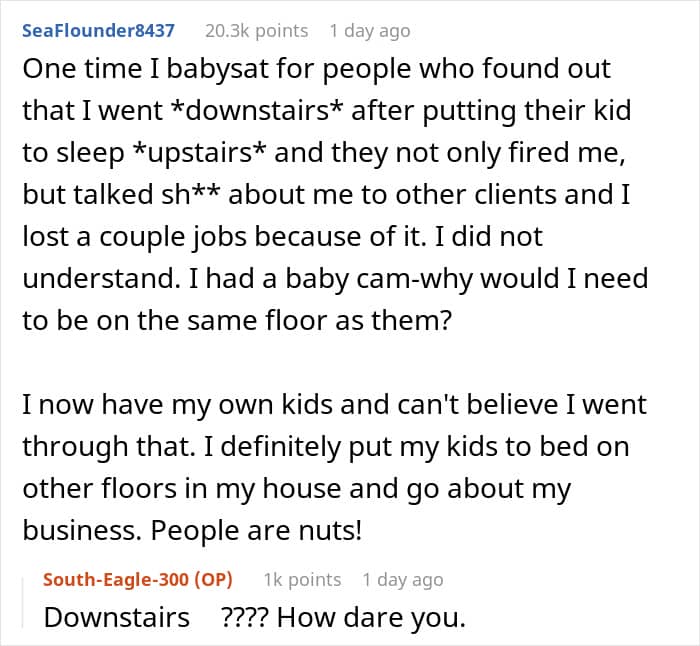
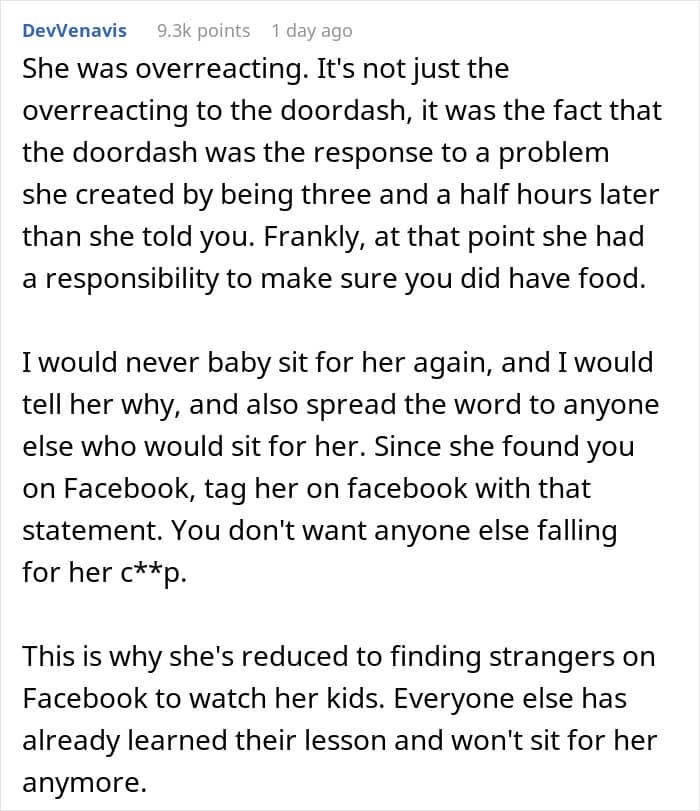

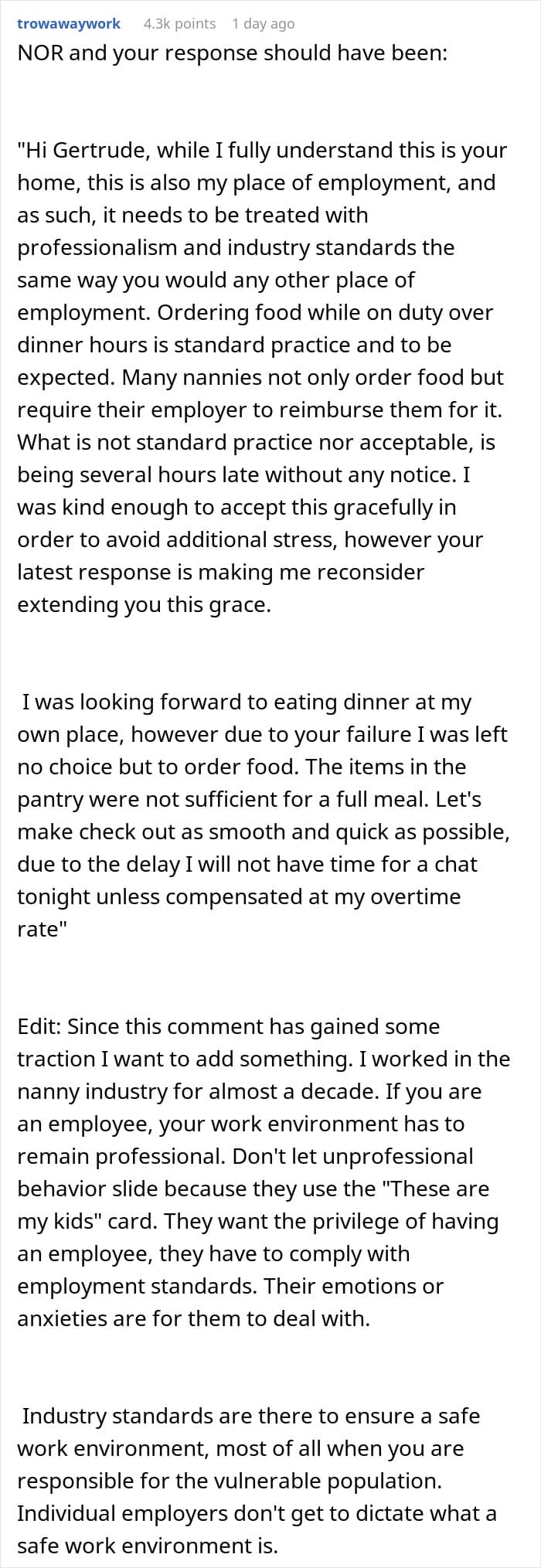
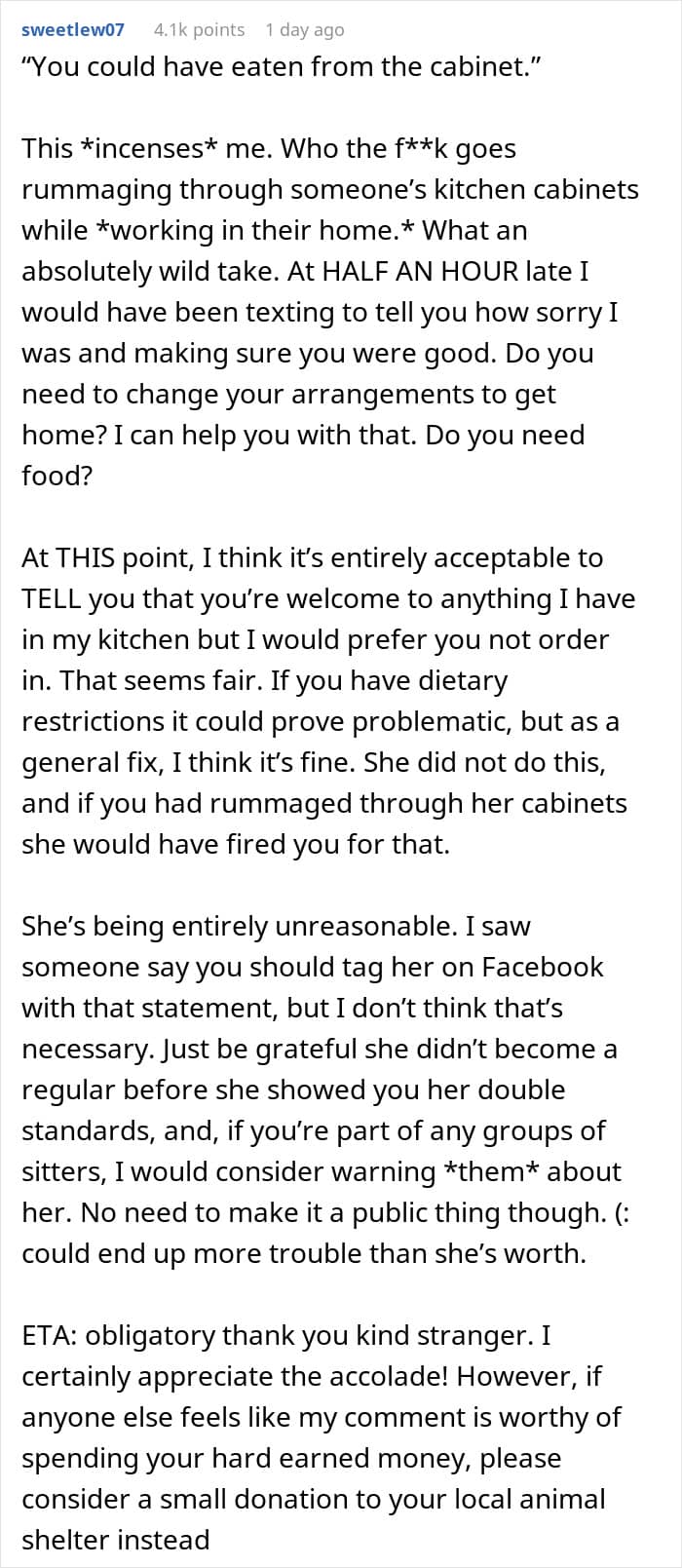
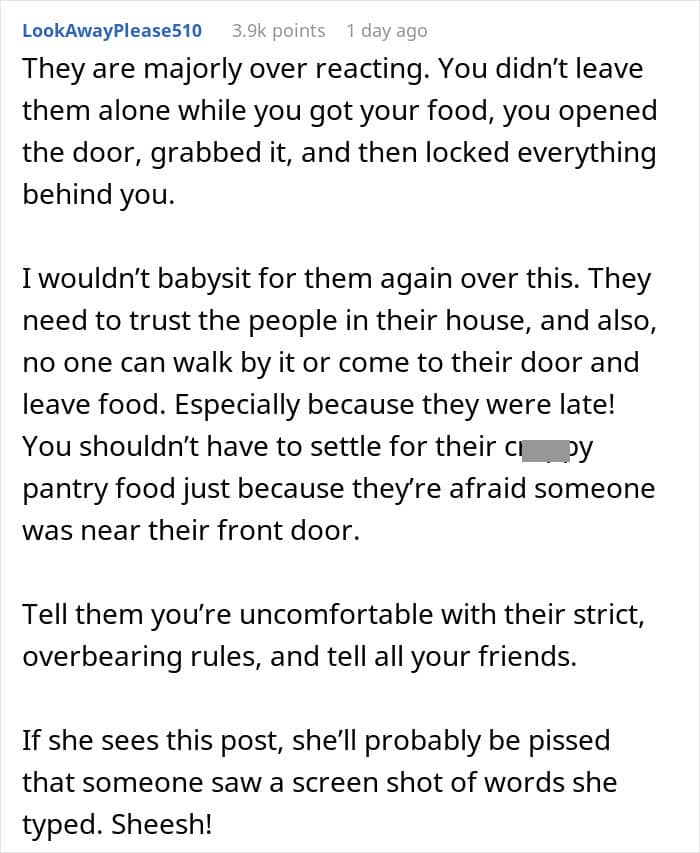
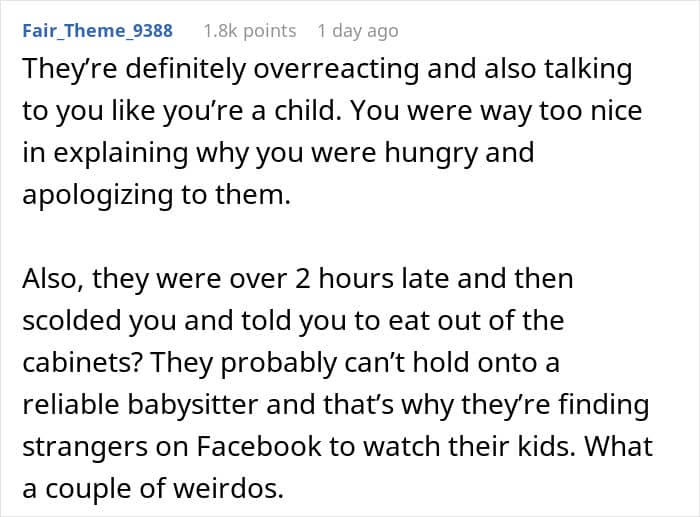
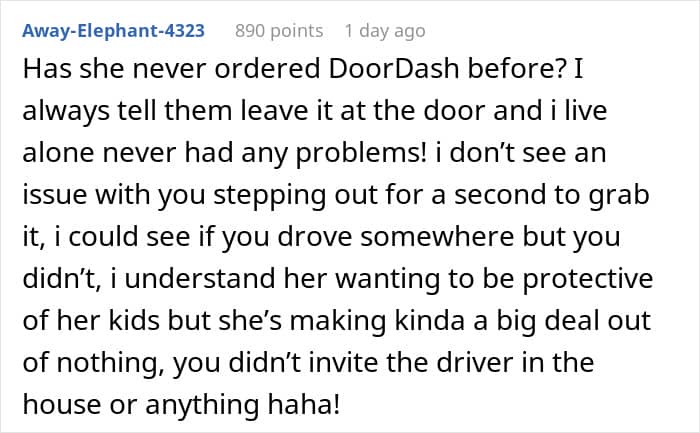
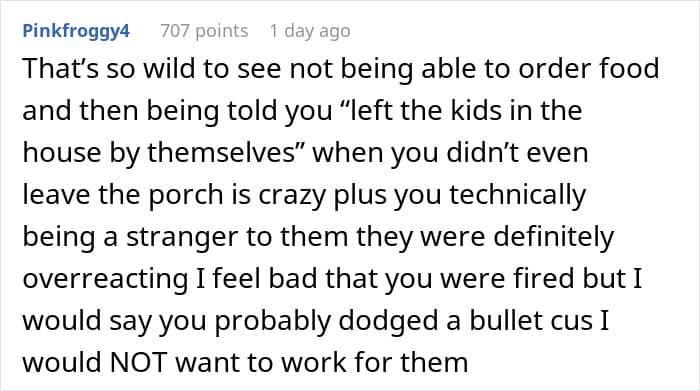
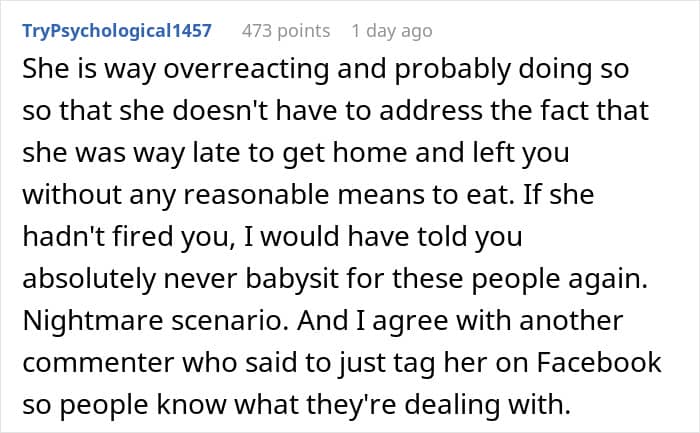
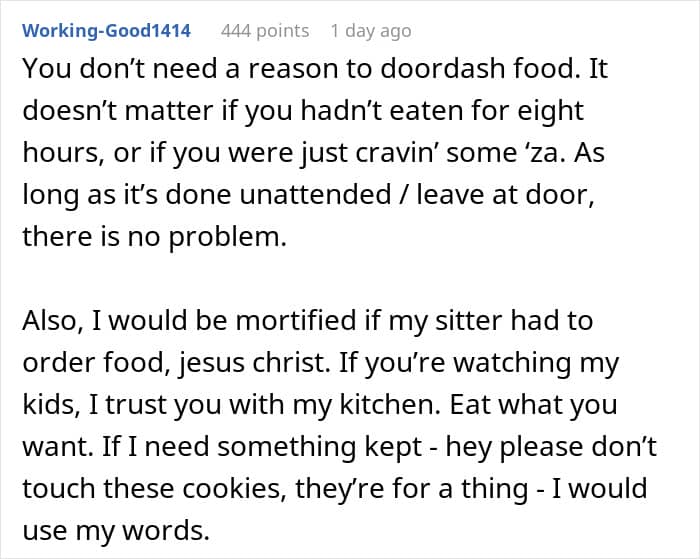
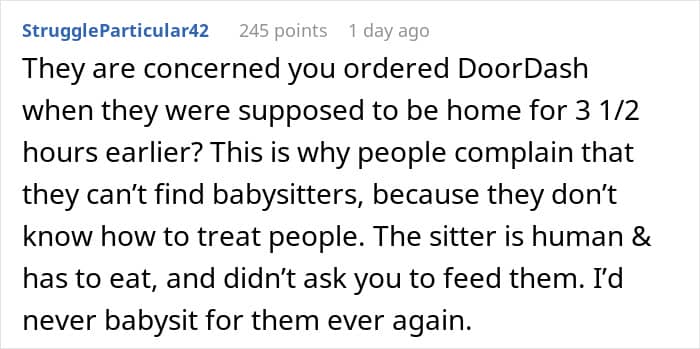

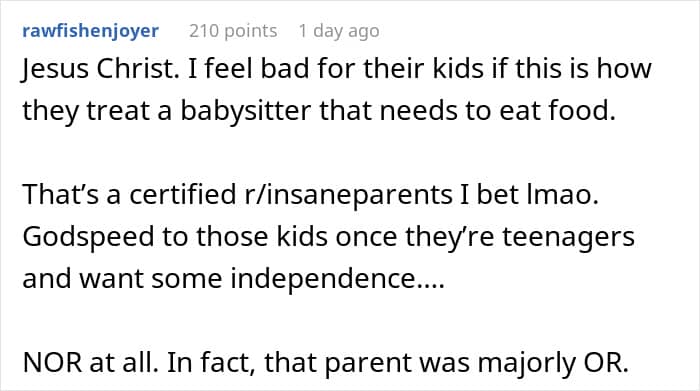


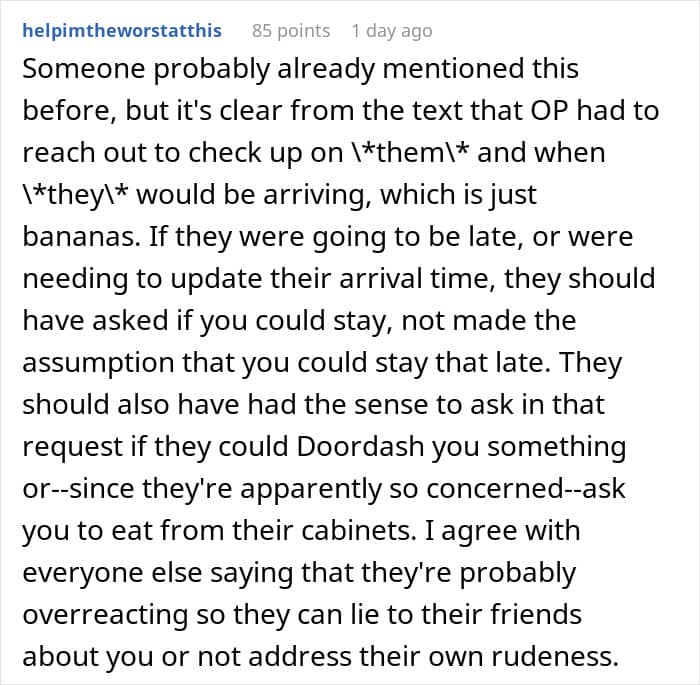

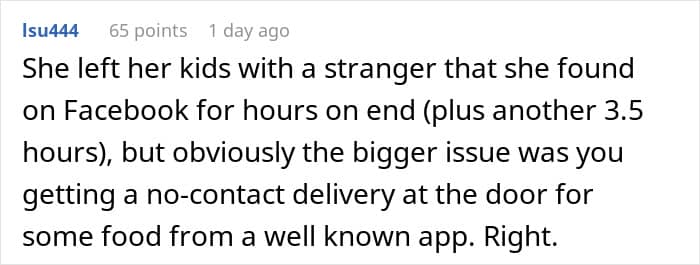

Others, however, felt the babysitter should’ve checked in first to see if ordering food was okay
